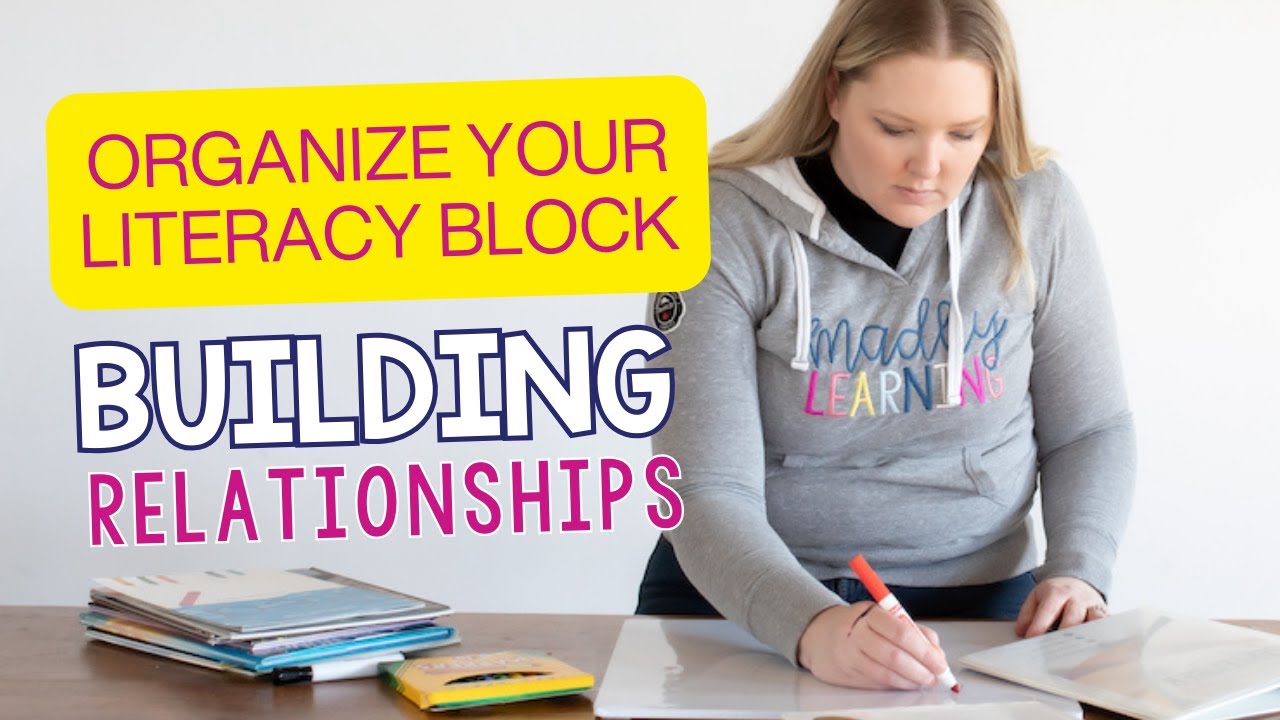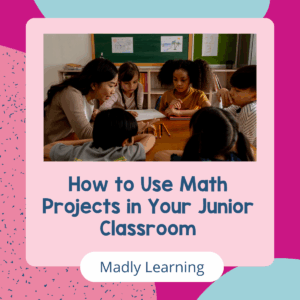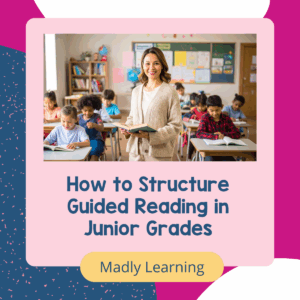Building a strong foundation of relationships with your students is essential for creating an effective and engaging literacy classroom. The connections you foster with your students go beyond just academics; they form the bedrock of a supportive and thriving classroom environment where students feel seen, valued, and motivated to learn. Here’s how to prioritize relationships while meeting the goals of your literacy program.

The Importance of Building Trust in the Literacy Classroom
Establishing trust is key to helping students feel comfortable sharing their thoughts and ideas. In literacy, where students are often asked to write or discuss personal experiences, they need to trust both their teacher and peers. When students feel safe, they are more willing to take risks in their learning, whether it’s trying a new writing style or speaking up during discussions.
How to Build Trust:
- Consistency and Predictability: Students should know what to expect from you. This fosters a sense of stability and security.
- Mutual Respect: Show respect to your students from day one, and they will be more likely to respect you in return.
- Genuine Care: Learn something unique about each student and acknowledge their individuality.
Creating a Community of Learners
A successful literacy classroom functions as a community. Students need to feel like they belong and are part of a collective effort. By fostering positive interactions, you create an environment where collaboration and support are the norm.
Tips for Building a Classroom Community:
- Open Communication: Encourage students to share their thoughts and listen actively when they do.
- Focus on Positive Behaviour: Highlight and praise students who are following expectations, which encourages others to emulate the behaviour.
- Group Activities: Incorporate tasks that require teamwork, such as brainstorming sessions or peer editing.
Engaging Activities That Build Relationships
Integrating relationship-building activities into your literacy program can enhance student engagement and set the tone for the year.
Heart Mapping Activity
This activity invites students to create a heart map filled with their interests, hobbies, family connections, and what makes them unique. It serves multiple purposes:
- Getting to Know Students: Gain insights into what excites and motivates them.
- Idea Generation: Students can refer back to their heart maps for inspiration during writing assignments.
- Building Connections: Sharing their maps helps students learn about their peers, strengthening the classroom community.
Encouraging Student Choice and Voice
Empowering students to make choices about their learning fosters independence and confidence. Allowing students to select topics or formats for their writing gives them ownership of their work and highlights their unique perspectives.
Ways to Encourage Student Voice:
- Diagnostic Writing: Start the year with open-ended writing prompts to gauge where your students are in their literacy journey.
- Support Risk-Taking: Encourage experimentation in their writing, reassuring them that mistakes are part of the learning process.
- Feedback that Inspires: Provide constructive and encouraging feedback that celebrates effort and identifies areas for growth.
The Role of Feedback in Relationship Building
Providing meaningful feedback is one of the most effective ways to strengthen relationships in the literacy classroom. Oral feedback delivered with care and specificity can transform how students view their abilities.
Effective Feedback Strategies:
- Highlight what students are doing well before offering suggestions for improvement.
- Use encouraging language that motivates students to push themselves.
- Follow up on previous feedback to show you value their progress.


Shifting Mindsets About Writing
Many students come into the classroom with preconceived notions about their writing abilities. One of your primary goals during the kickoff period should be to help them see themselves as capable writers.
How to Change Mindsets:
- Celebrate Small Wins: Acknowledge progress, no matter how small, to build confidence.
- Address Barriers: Help students overcome challenges like spelling or handwriting by focusing on their strengths.
- Encourage Creativity: Allow students to write freely without fear of judgment, especially at the beginning of the year.
Final Thoughts: Relationships as the Core of Literacy Success
The relationships you build with your students set the stage for a successful literacy classroom. By fostering trust, encouraging risk-taking, and celebrating individuality, you create an environment where students feel safe to explore, express, and grow. Relationships are not just a “nice-to-have” element—they are the foundation upon which meaningful literacy learning happens.
Check out the first post in this literacy classroom series all about creating a literacy routine!



